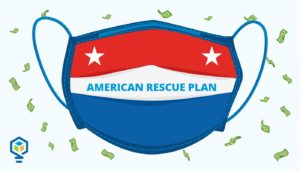For a business owner, almost nothing in life is more uncertain than running a company during a pandemic. Like most people, worry about your own livelihood, family, friends, and loved ones and how you’ll cope during COVID-19 is at the top of your mind. But unlike others, you’ve got the added concern about your employees – both for their health and safety, as well as their financial health.
While the government made some relief available in the earlier days of the pandemic such as forgivable loans like the Paycheck Protection Program (PPP) and Emergency Injury Disaster Loans (EIDL) one of the biggest benefits provided has to do with a little known tax provision to the tax law.
This provision makes it possible to provide certain payments without tax during a terrorist attack or disaster, but if it weren’t for a certain interpretation of President Trump’s declaration in March 2020, this benefit wouldn’t exist for COVID-19.














